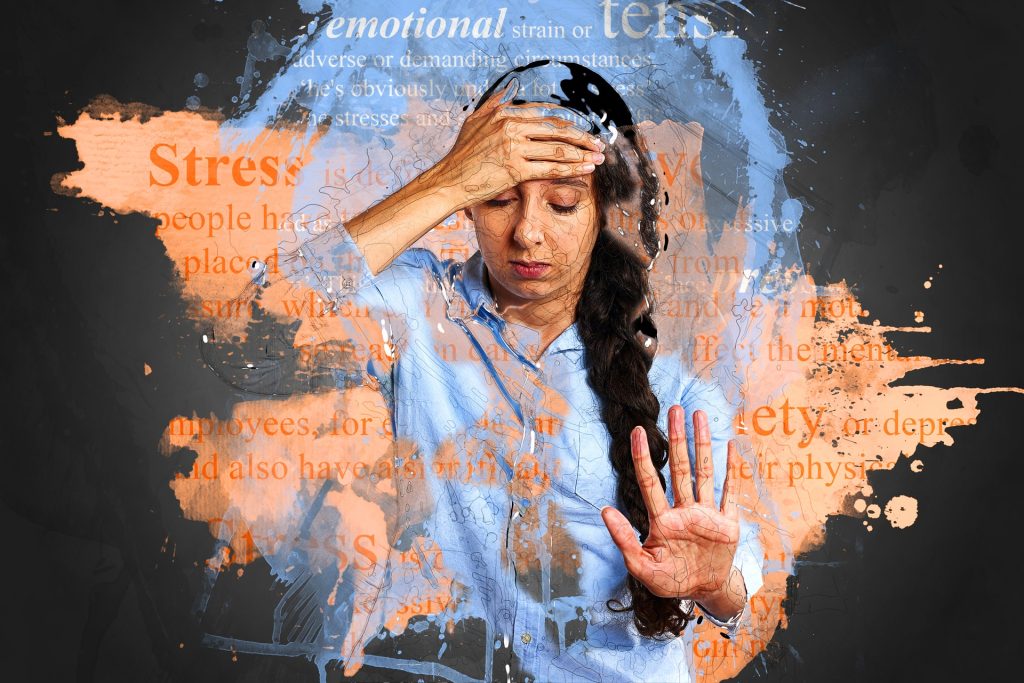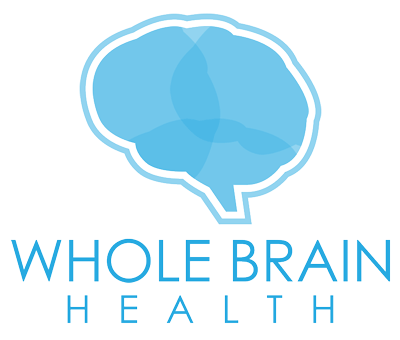Stress and Brain Health
By Dr. Amrita Sharma, June 22, 2020

Have you ever found yourself in circumstances where your to-do list at office seems endless, fast approaching deadlines, unorganized household chores, as a result you start feeling agitated, moody, insomnia, low energy, nervousness and sweaty palms, aches and pains etc. That’s your body telling you that you are Stressed. But how do you define It? Stress has become a known and common part of our daily life. It is defined as any physical or psychological event that is perceived as a potential threat to physical or emotional well-being. It is our body‘s reaction to any change in our environment, thoughts, health that requires any adjustment or response.
Stress in particular is not something bad. Our body is built in such a way that it can experience and deal with it. A positive life situation can also give us stress like going on a vacation, moving homes etc. In fact we need to have a little bit of stress in our life as it keeps us motivated, alert and makes us work more efficiently and prepares us to avoid danger.Hans Selye, the famous physiologist has called it Eustress (positive stress). So, when does stress become Distress or in simple words negative stress? It’s when we keep on facing new and never ending challenges without any solace or relaxation, they become overworked and stress related tension starts building in the body. Baum (1994) proposes that direct and indirect effects of stress each leads to an increase in illness.The indirect effects occur when the negative emotional effects of stress interfere with health-related behavior, such as eating a balanced diet or scheduling a physical examination.
The direct physical effects are somewhat more surprising in that stress delays the healing process in wounds, has a negative effect on the endocrine system, and interferes with the functioning of the immune system (Kiecolt-Glaser et al.,1998). If it continues for a long period of time it affects our memory too.
It is quite common to feel lost and forgetful when we are under a lot of Stress. Our body stress response system consists of autonomic nervous system and HPA axis. The autonomic nervous system has the direct role in physical response to stress, which contributes to what is known as “fight or flight response”. Also on the other end, in a stressful situation the hypothalamus is activated which in turn signals two other organs in our body Pituitary Gland and Adrenal Medulla. This interaction is called the HPA axis, it produces the hormone Cortisol. Continuing prolonged Stress leads to higher levels of cortisol, which wears down the ability of our brain to function properly. It can disrupt the synapse regulation which results in loss of sociability and the avoidance of interaction with others.Research has shown the association between social isolation and memory decline. Chronic stress can lead to shrinking of the prefrontal cortex, the areas of the brain responsible for concentration, decision-making, judgement and thus setting the path for serious mental problems like depression and eventually Alzheimer’s disease. But it’s not all bad news. Brain has the ability to reorganize itself by forming new neural connections throughout life, this is called neuroplasticity. So the question arises how do we reverse the impact of stress on our brains?
6 Tips to Reduce Stress:
- Exercise: Exercising regularly is one of the most effective ways to combat stress. It lowers the levels of stress hormone cortisol and also releases endorphins, the happy hormone which helps in improving mood and are also natural painkillers. Regular exercise also improves the sleep quality, which is deeply affected when people are stressed. It’s also reported that stress increases when length and quality of sleep decreases. Almost any type of exercise will help. For most healthy adults The Department of Health and Human Service recommends getting at least 150 minutes a week of moderate aerobic activity or 75 minutes a week of vigorous aerobic activity.
- Meditation: Meditation is the age-old technique that can help reduce the stress level. When an individual faces the stressors the body prepares to fight or run. In some cases it is helpful but prolonged state of such distress can cause physical damage to our body. Meditation can help calm and heal the mind and body. One of the most widely used methods is The relaxation response technique. There are also various apps like Headspace, Calm, Insight timer that can help in guided meditation.
- Time Management: Setting out the time to carefully chalk out the work that you need to get done the following day/week helps keep you focussed and organized. And in addition prioritizing the activities that require your immediate attention can reduce the mental pressure off your mind and get them done quickly. There are various planners that can help you plan perfectly.
- Talk: Sometimes talking with someone helps to make us feel better. Continuous distress clouds our judgement and often doesn’t let us see clearly and in such times the perspective of other people whom we trust helps us to find solutions to our stressor.
- Intake of Caffeine/Alcohol: Reduce the intake of caffeine and alcohol, because they will not prevent stress but will increase it.
- Nutrition: A healthy diet of fruits and vegetables with good amounts of hydration will keep the immune system strong, which in turn will keep you attentive and healthy when you face stressful situations.
In the end we can say Stress is the common problem of our modern world and there is no escaping it. What is required is to effectively manage it, so it motivates and encourages us to overcome obstacles 🙂 .
Thanks for reading! Want to help Whole Brain Health by shopping on amazon and paying nothing extra? Go through here and start a shopping list on amazon: https://amzn.to/2BzCUgk . Or go here and purchase a product that will contribute to a healthy brain: https://www.wholebrainhealth.org/products/ . You will pay nothing extra and Whole Brain Health will get a small kick back to help us create more programs that create the best and most fun brain healthy lifestyles for seniors! If you’d like to just give a straight tax deductible donation with a receipt for your records emailed to you right away go here: https://www.wholebrainhealth.org/donate/ .
References
“Social Psychology (9780205581498): Baron, Robert A ….” https://www.amazon.com/Social-Psychology-12th-Robert-Baron/dp/0205581498. Accessed 18 Jun. 2020.
“Stress without distress (Book, 1974) [WorldCat.org].” https://www.worldcat.org/title/stress-without-distress/oclc/490049981. Accessed 20 Jun. 2020.
“Advances in Psychological Science, Volume 2: Biological and ….” Google Books Link. Accessed 16 Jun. 2020.
“Psychological Stress and the Human Immune System: A Meta ….” https://www.ncbi.nlm.nih.gov/pmc/articles/PMC1361287/. Accessed 16 Jun. 2020.
“Inter-relation between autonomic and HPA axis activity … – NCBI.” https://www.ncbi.nlm.nih.gov/pubmed/26835595. Accessed 20 Jun. 2020.
“The Mind and Mental Health: How Stress Affects the Brain.” 26 Jul. 2016, https://www.tuw.edu/health/how-stress-affects-the-brain/. Accessed 18 Jun. 2020.
“Social Isolation and Memory Decline in Later-life | The ….” 29 Nov. 2019, https://academic.oup.com/psychsocgerontology/article/75/2/367/5645554. Accessed 20 Jun. 2020.
“How stress affects your brain (in TED-Ed GIFs) – TED-Ed Blog.” 10 Mar. 2016, https://blog.ed.ted.com/2016/03/10/how-stress-affects-your-brain-in-ted-ed-gifs/. Accessed 18 Jun. 2020.
“Stress and sleep – American Psychological.” 1 Jan. 2014, https://www.apa.org/news/press/releases/stress/2013/sleep. Accessed 21 Jun. 2020.
“Exercise and stress: Get moving to manage stress – Mayo Clinic.” https://www.mayoclinic.org/healthy-lifestyle/stress-management/in-depth/exercise-and-stress/art-20044469. Accessed 18 Jun. 2020.
